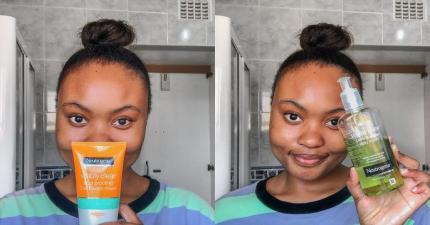
- 30 Sep, 2024
The Rise of Influencer Marketing in Africa: A New Era of Digital Engagement
The Rise of Influencer Marketing in Africa: A Game-Changer for Brands
In recent years, Africa has emerged as a vibrant hub for digital innovation, with influencer marketing becoming one of the key drivers behind this exciting revolution. With a rapidly growing internet population, a tech-savvy youth demographic, and an expanding middle class, Africa is quickly becoming a fertile ground for brands seeking to connect with consumers in more authentic and engaging ways.
In this blog, we'll explore how influencer marketing is flourishing in Africa, the unique opportunities it offers, and why it’s rapidly becoming a game-changer for brands across the continent.
The Digital Boom in Africa
Africa is undergoing a digital transformation at an unparalleled pace. According to a report by We Are Social and Hootsuite, the number of internet users in Africa grew by 12% in 2023, reaching over 500 million people. The continent’s youth population, which makes up a significant portion of internet users, is especially active on social media platforms like Instagram, Twitter, Facebook, TikTok, and YouTube.
This digital shift is largely driven by the availability of affordable smartphones, improved internet connectivity, and the emergence of local content creators. With over 60% of Africa’s population under the age of 25, brands are increasingly turning to influencer marketing to engage with these dynamic, digitally native audiences in ways that feel more personal and relatable than traditional advertising.
Why Influencer Marketing is Thriving in Africa
1. Authenticity and Trust
One of the main reasons influencer marketing has gained traction in Africa is the authenticity it brings. African consumers—especially younger ones—are drawn to influencers who resonate with their culture, lifestyle, and values. Unlike traditional ads, which can feel disconnected or impersonal, influencers provide a more personal connection, building trust and relatability. Whether it’s a beauty influencer in Nigeria or a tech expert in South Africa, audiences are more likely to trust their opinions than direct brand messaging.
2. Diverse Influencer Pool
Africa’s diversity is one of its greatest strengths. With over 54 countries, each with distinct cultures, languages, and consumer preferences, brands have access to a vast range of influencers. From high-profile celebrities to micro and nano influencers, Africa's markets are teeming with creators in niches ranging from fashion and music to food, travel, and sports. Brands can target specific demographics by collaborating with influencers whose audiences align with their product, ensuring more effective and tailored campaigns.
3. Local Context and Culture
Influencers in Africa have a deep understanding of local contexts, traditions, and cultural nuances, allowing them to create content that is both relatable and contextually relevant. By working with influencers who are familiar with the intricacies of different African regions, brands can ensure their messaging resonates in a way that feels both natural and respectful—while avoiding cultural missteps.
4. Growing Social Media Engagement
Social media’s rapid growth in Africa has played a pivotal role in the rise of influencer marketing. Platforms like Instagram dominate the fashion, beauty, and lifestyle sectors, while TikTok is quickly gaining ground, particularly with Gen Z. Influencers on these platforms boast massive engagement, often exceeding that of traditional media outlets, making them highly valuable partners for brands looking to connect with specific audiences.
5. Affordability and Accessibility
In contrast to Western markets, where influencer campaigns can be prohibitively expensive, Africa offers a more budget-friendly landscape. Working with local influencers typically costs less than partnering with international influencers, making influencer marketing accessible to businesses of all sizes—especially small and medium enterprises (SMEs). Additionally, the accessibility of social media means even smaller-scale influencers can generate substantial engagement, offering brands a cost-effective way to target niche audiences.
The Challenges and Opportunities
While influencer marketing in Africa holds immense promise, there are still a few challenges to consider. One significant hurdle is digital literacy and internet access in some rural areas. Although urban centers are well-connected, rural regions may still face connectivity issues, which can limit the reach of certain influencers. However, the digital divide is quickly narrowing, with affordable data packages helping bridge this gap.
Another challenge is ensuring transparency and authenticity in influencer marketing. The rise of fake followers and engagement has made it crucial for brands to partner with influencers who have genuine, engaged audiences. Tools like social media analytics and influencer marketing networks are helping brands assess the authenticity of potential collaborators.
Future Outlook: The Growth of African Influencers
As African influencers continue to make waves both locally and globally, brands will have even more opportunities to connect with audiences across the continent. Many African influencers are already collaborating with international brands and reaching global audiences, putting Africa at the forefront of digital innovation.
With Africa's young, digitally connected population expected to grow even further in the coming decades, influencer marketing will continue to play a crucial role in shaping brand-consumer relationships. As this generation becomes more affluent and socially engaged, influencer-driven content will become an increasingly powerful tool for brands to establish long-lasting, authentic relationships with consumers.
How Brands Can Leverage Influencer Marketing in Africa
1. Choose the Right Influencers
When selecting influencers, it’s important to consider factors like audience demographics, engagement rates, and content authenticity. Micro and nano influencers—those with highly engaged followings—often deliver more impactful results than mega-influencers, especially when targeting niche markets.
2. Embrace Local Creators
Collaborating with local influencers ensures that your campaigns are culturally relevant and resonate with audiences in an authentic way. Local influencers possess a deep understanding of their followers' preferences, enabling them to create more personalized, effective marketing strategies.
3. Focus on Long-Term Relationships
Rather than running one-off campaigns, brands should consider building long-term partnerships with influencers. This fosters greater authenticity, as influencers become true ambassadors who genuinely support and believe in the brand.
4. Monitor and Measure Performance
Leverage data-driven insights to track the success of influencer campaigns. Monitoring metrics like engagement rates, click-through rates, and conversions will allow brands to refine future campaigns and ensure they’re getting the best return on investment (ROI).
Conclusion
Influencer marketing in Africa is more than just a passing trend—it’s a powerful strategy that is rapidly reshaping the continent’s digital landscape. With its authenticity, cultural relevance, and cost-effectiveness, influencer marketing offers brands a unique opportunity to connect with Africa's diverse and engaged audiences. As Africa's digital ecosystem continues to evolve, influencer marketing will play a pivotal role in shaping the future of brand-consumer relationships across the continent.
Now is the time for brands to tap into Africa's influencer market and unlock the immense potential it holds for growth, engagement, and impact.




